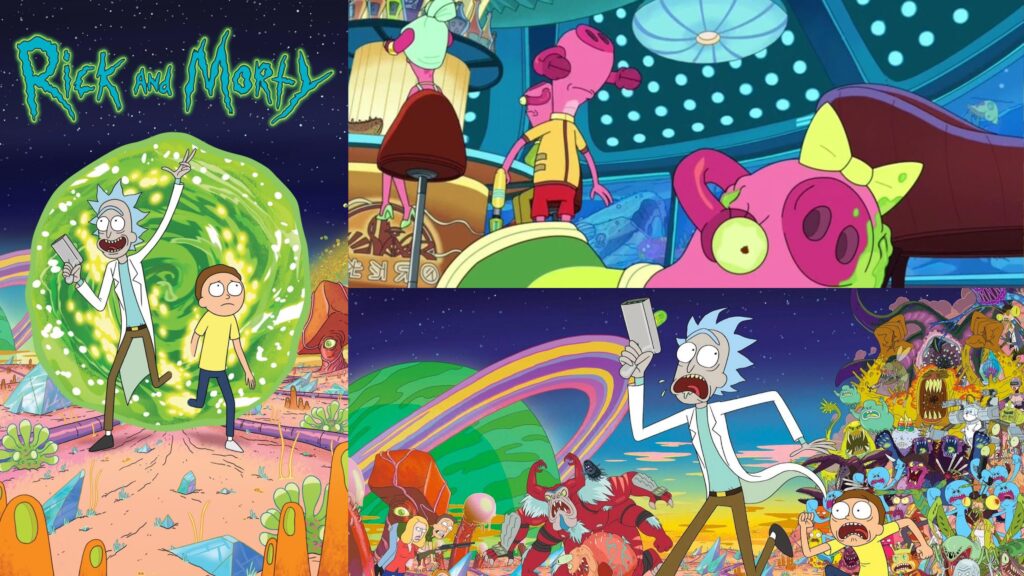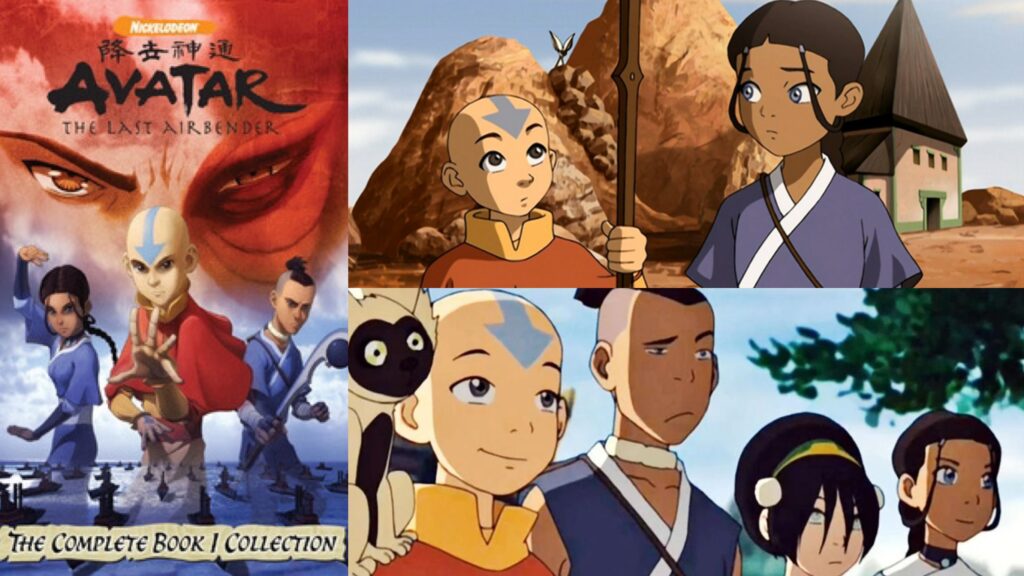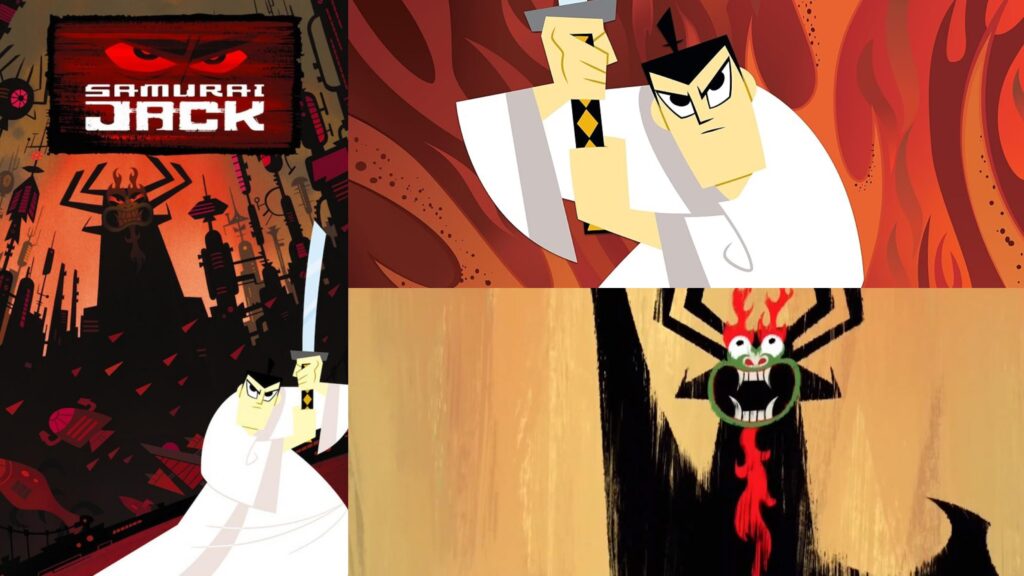15 Best Cartoons for Adults: Cartoons aren’t just for kids anymore. Over the years, animation has evolved to tackle complex themes, offering profound insights into human nature, society, and existential questions. These adult-oriented cartoons combine engaging storytelling with deep philosophical, emotional, and ethical explorations. Here’s a list of 15 of the best cartoons for adults that are surprisingly deep.
1. BoJack Horseman (2014–2020)
Overview: Set in a world where humans and anthropomorphic animals coexist, BoJack Horseman follows the life of BoJack, a former sitcom star struggling with addiction, depression, and a desire for redemption. The show delves into his tumultuous relationships and his attempts to find meaning in his life.
Why It’s Surprisingly Deep:
- Mental Health Exploration: Tackles issues like depression, anxiety, addiction, and the search for happiness with unflinching honesty.
- Complex Characters: Each character is multi-dimensional, with their own flaws, motivations, and growth arcs.
- Social Commentary: Critiques Hollywood culture, fame, and the emptiness that can accompany success.
- Emotional Resonance: Balances dark humor with moments of profound sadness and introspection.

2. Rick and Morty (2013–Present)
Overview: An eccentric and alcoholic scientist, Rick Sanchez, takes his timid grandson Morty on dangerous and bizarre adventures across the multiverse. The show combines sci-fi elements with dark humor and existential themes.
Why It’s Surprisingly Deep:
- Philosophical Themes: Explores existentialism, nihilism, and the meaning (or meaninglessness) of life.
- Complex Narratives: Uses high-concept sci-fi plots to delve into character psychology and moral dilemmas.
- Character Development: Examines the effects of Rick’s cynicism on his family, especially Morty.
- Dark Humor: Balances absurd comedy with moments that question reality and morality.
3. Futurama (1999–2013, 2023–Present)
Overview: Philip J. Fry, a pizza delivery boy, is accidentally frozen in 1999 and wakes up 1,000 years later. He joins an interplanetary delivery company, making new friends and encountering futuristic challenges.
Why It’s Surprisingly Deep:
- Themes of Loneliness and Purpose: Explores Fry’s search for meaning in a new world.
- Emotional Episodes: Moments like “Jurassic Bark” and “The Luck of the Fryrish” are renowned for their emotional impact.
- Social Satire: Critiques modern society, technology, and corporate culture through a futuristic lens.
- Character Relationships: Highlights the importance of friendship and love across time.

4. Avatar: The Last Airbender (2005–2008)
Overview: In a world divided into four nations—Water, Earth, Fire, and Air—Aang, the last Airbender and the Avatar, must master all four elements to end the Fire Nation’s war and restore balance.
Why It’s Surprisingly Deep:
- Mature Themes: Addresses war, genocide, imperialism, and the loss of culture.
- Character Growth: Each character undergoes significant development, facing moral and ethical challenges.
- Philosophical Concepts: Incorporates Eastern philosophies, spirituality, and meditation.
- Moral Ambiguity: Explores the complexities of right and wrong, destiny, and choice.

5. Samurai Jack (2001–2004, 2017)
Overview: A samurai prince is sent forward in time by the evil demon Aku. Known as Jack, he seeks to return to his own time to defeat Aku and undo the destruction caused by him.
Why It’s Surprisingly Deep:
- Visual Storytelling: Utilizes minimal dialogue, relying on visuals and atmosphere.
- Themes of Perseverance: Explores isolation, purpose, and the relentless pursuit of justice.
- Artistic Excellence: Combines various art styles and cultural influences.
- Philosophical Undertones: Questions the nature of good and evil, fate, and free will.
6. Over the Garden Wall (2014)
Overview: Half-brothers Wirt and Greg become lost in a mysterious forest called the Unknown. They encounter strange creatures and characters while trying to find their way home.
Why It’s Surprisingly Deep:
- Existential Journey: Represents a metaphorical journey through life and death.
- Folklore and Mythology: Draws on American folk traditions and fairy tales.
- Emotional Depth: Explores themes of fear, responsibility, and redemption.
- Atmospheric Storytelling: Combines dark and whimsical elements to create a unique mood.
7. Moral Orel (2005–2008)
Overview: A stop-motion animated series that satirizes religious fundamentalism through the experiences of Orel Puppington, a devout Christian boy in a dysfunctional family and town.
Why It’s Surprisingly Deep:
- Satirical Critique: Examines hypocrisy, blind faith, and the misinterpretation of religious teachings.
- Character Complexity: Reveals the hidden pains and flaws of seemingly perfect individuals.
- Dark Humor to Tragedy: Transitions from comedic tones to deeply tragic narratives.
- Psychological Exploration: Addresses addiction, abuse, and the quest for meaning.
8. The Midnight Gospel (2020)
Overview: Clancy, a spacecaster with a malfunctioning multiverse simulator, interviews beings living in dying worlds. The series is a blend of psychedelic animation and philosophical conversations.
Why It’s Surprisingly Deep:
- Philosophical Dialogues: Features real interviews on topics like death, spirituality, and enlightenment.
- Innovative Format: Combines podcast-style conversations with surreal animation.
- Emotional Honesty: Addresses personal loss, acceptance, and the human condition.
- Visual Metaphors: Uses abstract visuals to represent complex ideas.
9. Archer (2009–Present)
Overview: A satirical spy comedy that follows Sterling Archer, a suave but self-centered secret agent, and his colleagues at the dysfunctional spy agency ISIS.
Why It’s Surprisingly Deep:
- Character Flaws: Delves into issues like alcoholism, abandonment, and identity.
- Dark Comedy: Uses humor to explore serious personal and professional dysfunctions.
- Narrative Arcs: Develops long-term storylines that reveal deeper character motivations.
- Social Commentary: Parodies espionage tropes while critiquing workplace dynamics.
10. Adventure Time (2010–2018)
Overview: Finn the Human and Jake the Dog embark on surreal adventures in the Land of Ooo, a post-apocalyptic world filled with magical creatures and strange kingdoms.
Why It’s Surprisingly Deep:
- Layered Storytelling: Beneath its whimsical surface lies a narrative about loss and healing.
- Character Development: Characters evolve over time, facing personal challenges.
- Themes of Friendship and Love: Explores complex relationships and emotional growth.
- Philosophical Questions: Addresses existence, reality, and the nature of consciousness.
11. Neon Genesis Evangelion (1995–1996)
Overview: Teenager Shinji Ikari is recruited to pilot a bio-mechanical robot, Evangelion Unit-01, to combat monstrous beings called Angels threatening humanity.
Why It’s Surprisingly Deep:
- Psychological Exploration: Delves into depression, anxiety, and human psyche.
- Symbolism and Metaphor: Rich in religious and existential symbolism.
- Complex Characters: Each character represents different aspects of human emotion and trauma.
- Existential Themes: Questions identity, purpose, and the nature of reality.
12. Cowboy Bebop (1998–1999)
Overview: Set in 2071, a group of bounty hunters travels through space on the spaceship Bebop, each haunted by their past.
Why It’s Surprisingly Deep:
- Genre Fusion: Blends noir, western, and jazz influences.
- Themes of Loneliness and Redemption: Characters seek closure and meaning.
- Philosophical Musings: Reflects on existentialism and the human condition.
- Emotional Resonance: Combines action with deeply moving personal stories.
13. King of the Hill (1997–2010)
Overview: Focuses on the Hill family in the fictional town of Arlen, Texas, dealing with everyday life and societal changes.
Why It’s Surprisingly Deep:
- Realism: Portrays middle-class American life with authenticity.
- Subtle Humor: Uses dry wit to address serious topics.
- Character Relationships: Explores family dynamics and personal values.
- Social Issues: Tackles topics like tradition vs. progress, prejudice, and community.
14. Daria (1997–2002)
Overview: Daria Morgendorffer navigates high school life with her sharp intellect and deadpan sarcasm, often highlighting the absurdities around her.
Why It’s Surprisingly Deep:
- Social Critique: Comments on consumerism, superficiality, and conformity.
- Strong Female Protagonist: Emphasizes intelligence and individuality over popularity.
- Emotional Depth: Daria’s interactions reveal vulnerabilities and desires.
- Coming-of-Age Themes: Addresses identity, self-esteem, and personal growth.
15. Primal (2019–Present)
Overview: A dialogue-free series that follows a caveman named Spear and a dinosaur named Fang as they form a bond to survive in a harsh prehistoric world.
Why It’s Surprisingly Deep:
- Visual Storytelling: Conveys emotion and narrative solely through visuals and sound.
- Themes of Survival: Explores loss, companionship, and the instinct to persevere.
- Raw Emotion: Captures the primal aspects of fear, rage, and empathy.
- Artistic Expression: Combines brutal action with moments of profound beauty.
15 Best Cartoons for Adults That Are Surprisingly Deep
These cartoons push the boundaries of what animation can convey, offering rich narratives that challenge viewers to think critically about complex issues. Whether through satirical humor, philosophical exploration, or emotional storytelling, they prove that cartoons can be a profound medium for adult audiences seeking depth and meaning.
This post was created with our nice and easy submission form. Create your post!




